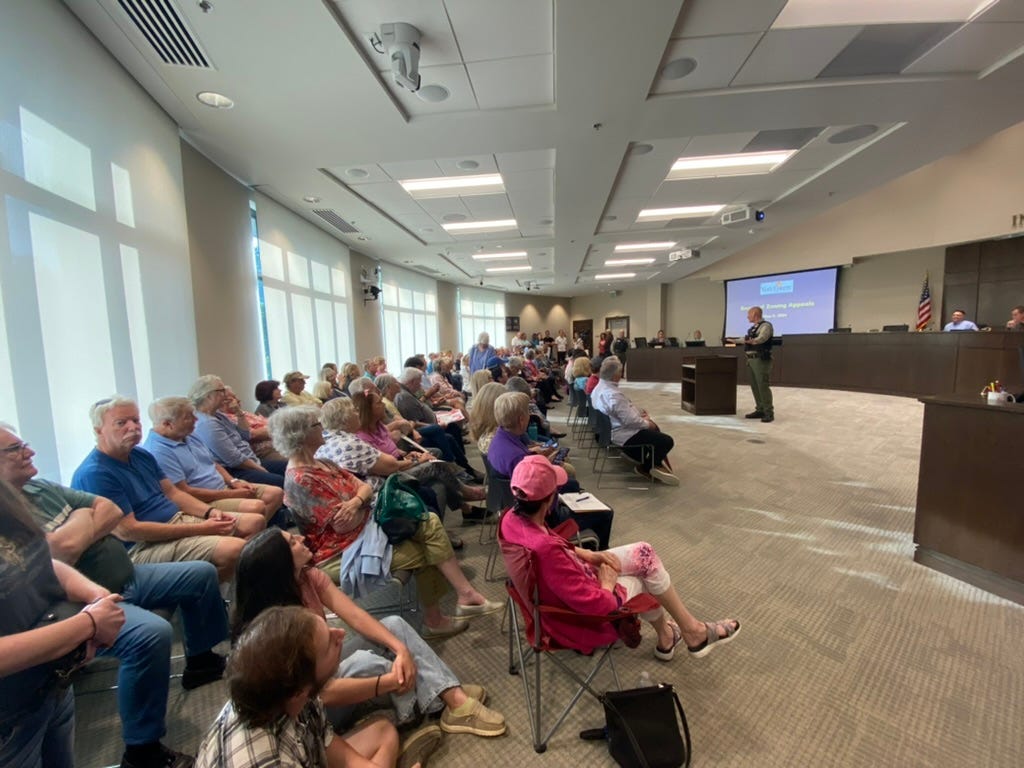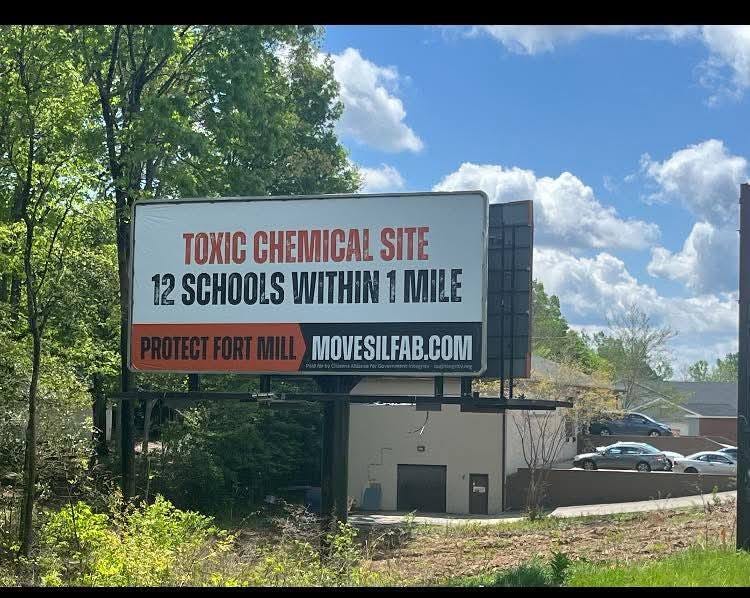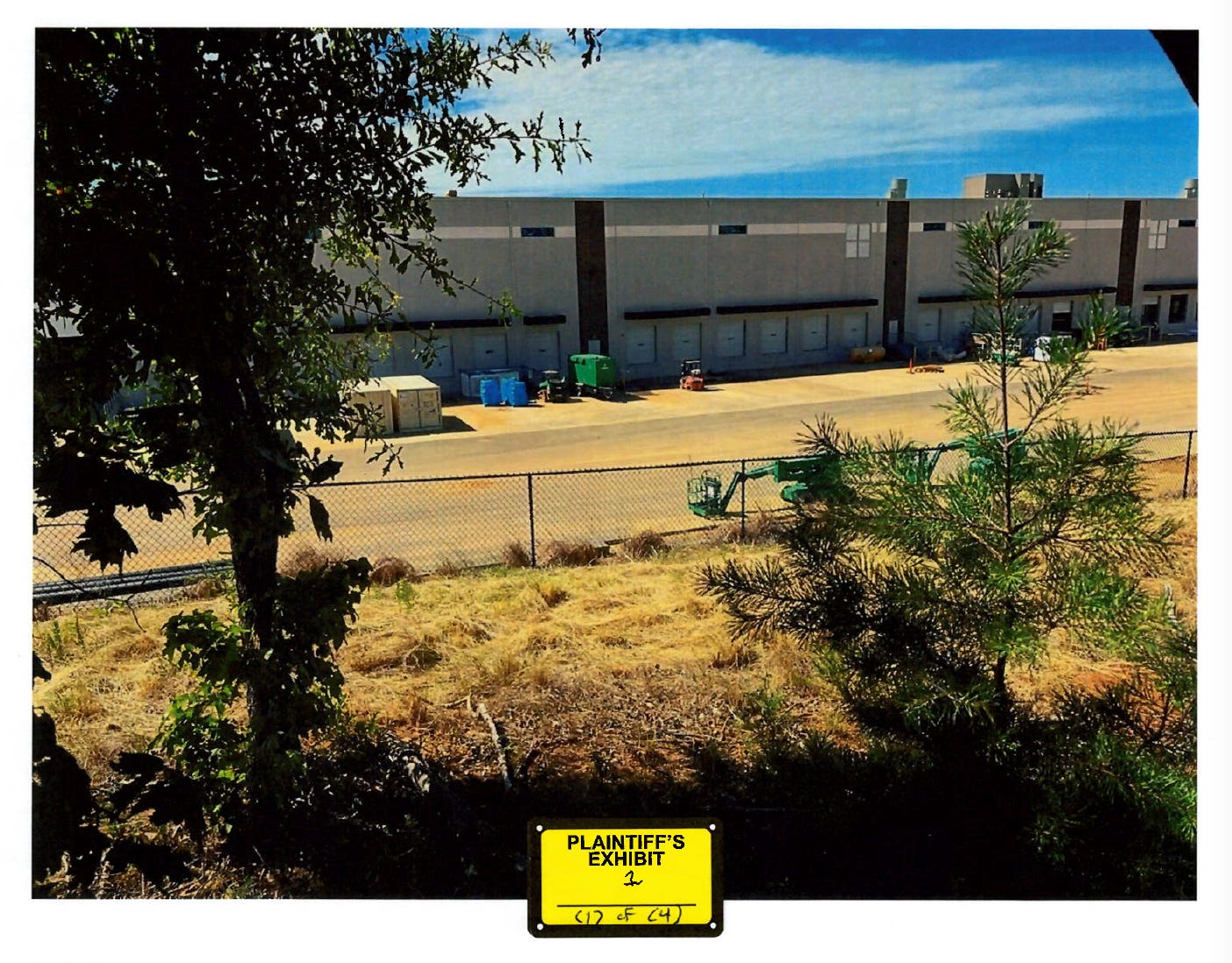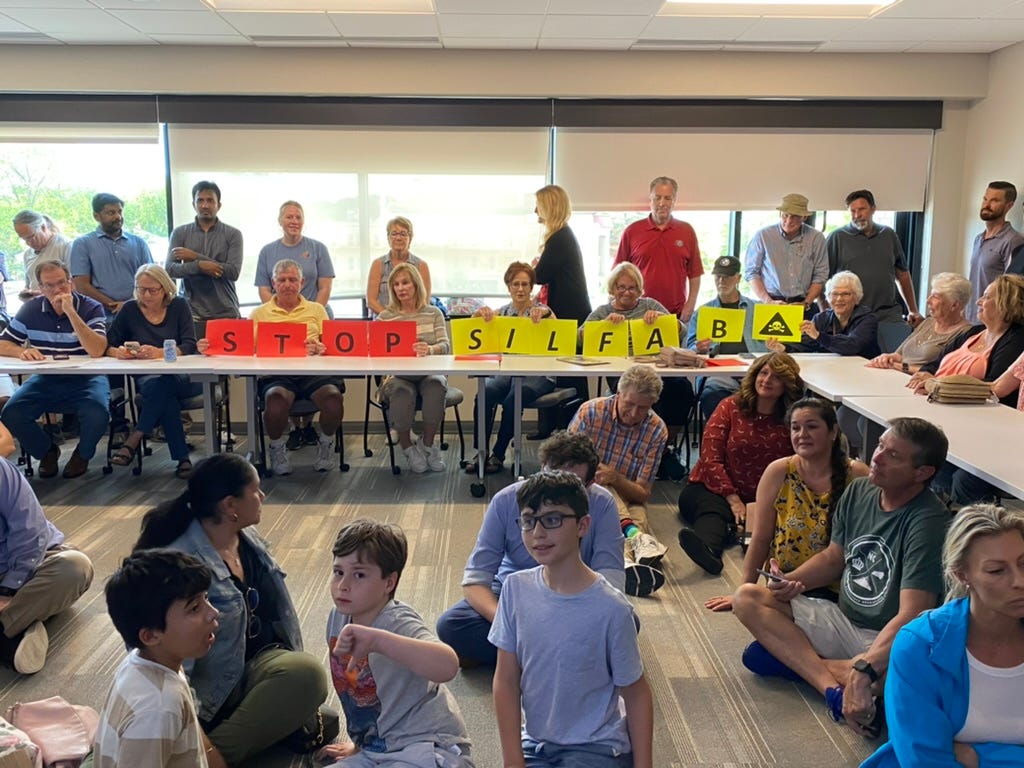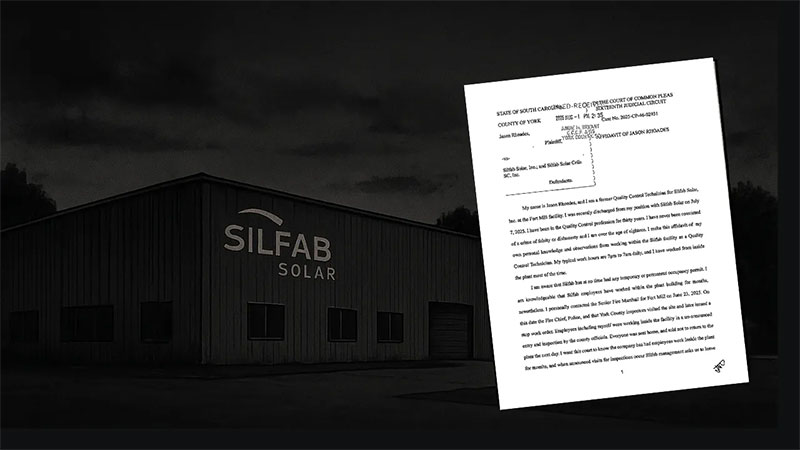
Jason Rhoades' testimony raises questions of negligence and fuels growing outrage over York County's handling of this foreign-run Fort Mill plant
A former Silfab Solar employee comes forward with evidence alleging the foreign company has been secretly in operation without appropriate permits and was fired days after asking for proof of occupancy permit.
In Fort Mill, a fierce dispute has unfolded over Silfab’s proposed manufacturing facility which is opposed by many York County residents who argue that the site, zoned “light industrial,” is dangerously close to two schools and poorly suited for a plant handling hazardous substances like silane and hydrofluoric acid.
Thanks for reading United Patriots Alliance News! Subscribe for free to receive new posts and support my work.
The first of several packed out rooms at York County Board of Zoning Appeals meeting on May 9th, 2024. Citizens waited up to six hours to share their opinions against Silfab because there were so many people in line.
On May 9th, 2024, the York County Board of Zoning Appeals unanimously ruled that the site was inappropriate under its current zoning, yet county officials and Silfab continued to push ahead: planning staff claiming the ruling didn’t apply to approved permits, and the county council event granted tax incentives.
This lack of adherence to the decision of the York County Board of Zoning Appeals has prompted mounting tension between local officials and the public, the latter establishing a group named “Move Silfab” that has installed signs, billboards, and rallying concerned citizens across the county speaking in opposition of Silfab Solar.
Former Silfab Employee Exposes Silfab for Allegedly Working Without an Occupancy Permit
Jason Rhoades is the former Quality Control Technician for Silfab Solar in Fort Mill, South Carolina. Rhoades has been in the quality control profession for 30 years and moved to South Carolina to work on Silfab’s Fort Mill site. In his affidavit, Rhoades states that he is “aware that Silfab has at no time had any temporary or permanent occupancy permit” even though “Silfab employees have worked with the plant building for months, nevertheless.”
Rhoades explains that he contacted the Senior Fire Marshall for Fort Mill on June 23, 2025. On that same day, the Fire Chief, police, and York County inspectors visited the site and consequently issued a stop work order. “Employees including myself were working inside the facility in a un-announced entry and inspection by the county officials. Everyone was sent home, and told not to return to the plant the next day.”
According to Rhoades, Silfab Solar in Fort Mill has had employees working on site for months and whenever inspections were scheduled to occur, Silfab management asked the employees to leave and work from home “in order that the plant facilities be made to look un-occupied with nobody actively working inside.” Rhoades states this personally happened to him, “I have been asked suddenly to stop work and leave the plant when inspectors were shortly to arrive.”
Evidence that Silfab Has Chemicals On Site & in Operation Without Operational Permit
If that was not enough, Rhoades’s affidavit raises an even more worrisome allegation that is confirmed by Ryan Adams, the Director of Business Development at Silfab Solar headquarters based in Toronto on a webcast hosted by Greentech Review in May of 2025. On this interview, Adams describes how the Fort Mill facility has engaged in the chemical process of producing product, which Rhoades stated the facility still does not have an operations permit to do so. You can watch the video clip of this interview below:
Rhoades acknowledges that he is “aware the process [Silfab is using] is a heavy industrial use, but the property that the Silfab site is located upon is zoned Light Industrial by code.”
According to his affidavit, Rhoades was fired after meeting with Silfab’s Director of Operations, Greg Basden when Basden flew to Fort Mill from Canada. On June 19th, 2025, Rhoades explains how he was called to the front office to speak with Basden who proceeded to ask Rhoades what safety issues he was concerned with at the plant.
“The main concern I voiced to Basden was would workers compensation cover me in the event of work injury given we had no occupancy permits,” Rhoades explained, “I asked my direct managers several times to show me where the TCO (temporary certificate occupancy) permits were posted…I have since learned Silfab has no permits, even though I was told otherwise by my supervisors. I told this to Mr. Greg Basden emphasizing we had no occupancy permit. Basden acknowledged that fact.”
After Rhoades explained his concerns and asked Basden if the company could assure that and claim would or would not be covered if workers were on site without an occupancy permit, Basden said he would find the answer to Rhoades’ question and would also send Rhoades a letter from the company’s insurance carrier signed by a Silfab official by June 23. Rhoades never received that letter and was fired on July 7th, 2025.
The Silfab representative that fired Rhoades stated that other safety occupation positions at Silfab were open but would not transfer Rhoades because he would not be a good fit. “I believe I have been retaliated against by Silfab,” Rhodes states bluntly, “Because I have noticed and reported safety violations involving equipment inside which has been put together for operation in haste, where no permit exists allowing occupancy or operations.”
Silfab Solar Secrets Exposed
Rhoades says he has worked on the Fort Mill Silfab site “secretly” since the first day he was hired on April 1, 2025 and was generally there five days a week along with the other employees unless they were told to stay home during inspections.
The whistleblower confidently states that “Silfab has begun chemical production lines using power from rented Sunbelt electrical generators, lines and “chillers” despite never having an operational permit.” Rhoades explains how he has seen chemical and “millions of wafers” housed within the warehouse but not in the “clean room” where the manufacturing production and printing lines are located. According to Rhoades, Silfab has six production lines that they plan to increase and on five that are permitted.
Silfab allegedly had their mechanic employees take over hooking up different machines without proper safety methods when the general contractor vacated the building for over two weeks during the mechanic’s lien dispute with Silfab.
By the end, Rhoades does not hide his aversion to the foreign companies methods. “…The direct supervisors and directors on site with authority show absolute disregard to USA rules, laws and regulations that I am familiar with.” On June 19th, the same day as Rhoades’ meeting with Basden, Rhoades and 30 other employees were told to go to the “clean room” which one had one unlocked door. The employees were asked to stay in the room while air pressure was tested in the rest of the warehouse and were told to stay in the room until 10pm. By 3am in the morning, they were still in the room. Rhoades and three of his quality control workers were asked by the production supervisor why they left. Rhoades makes it clear that the “clean room” had no fire sprinklers or fire suppression system.
To read Jason Rhoades’ complete affidavit, click HERE. Rhoades has filed a wrongful termination lawsuit.
For nearly two years, York County citizens have raised concerns about Silfab’s Fort Mill project, only to be met with deflection, half-answers, and lies from both county leadership and the company itself. Jason Rhoades’ affidavit and evidence proves what residents have warned this entire time: that safety and accountability were sacrificed in the rush to make a deal. Rather than confronting these concerns, local officials, state agencies, and Silfab pushed forward while dismissing community voices until a whistleblower forced their hand.
If local leaders truly believe in protecting the public they serve, ignoring and silencing those who speak out can no longer be the status quo. Rhoades may be the one blowing the whistle, but the deeper story is about a local government and a corporation that gamble with public trust who now must face the scrutiny they tried to avoid.













